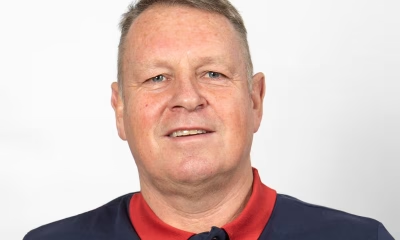Health
Dial 999 only for medical emergencies plea following high call volumes
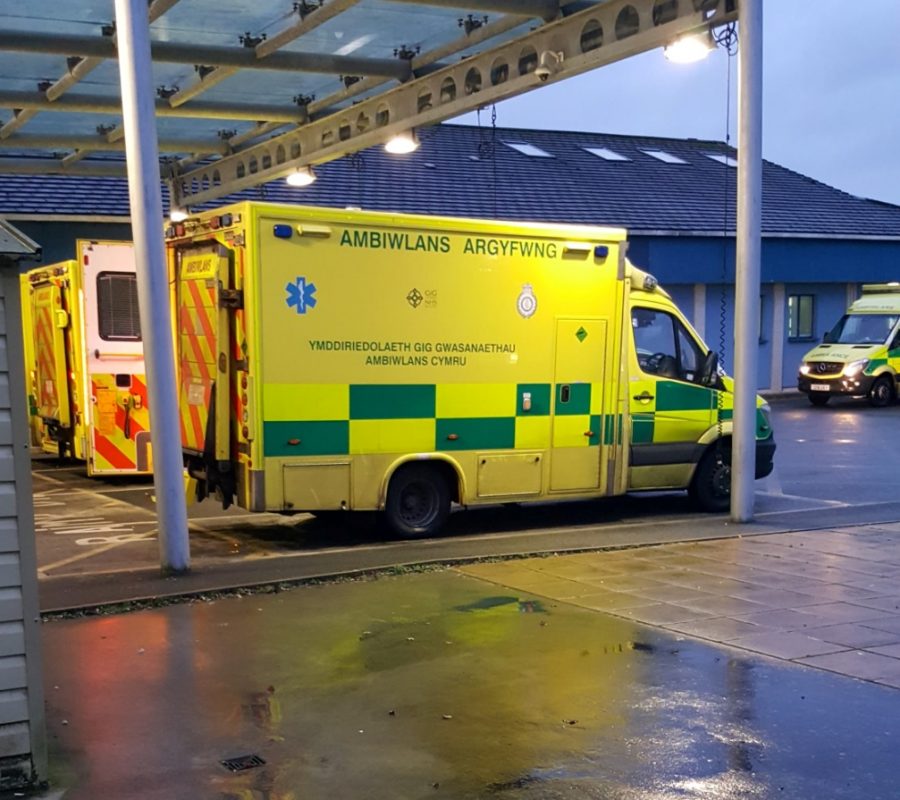
THE WELSH Ambulance Service has issued a plea to the public, urging restraint in dialling 999 unless faced with a genuine emergency. Lee Brooks, the Executive Director of Operations for the Welsh Ambulance Service Trust, has implored citizens to reserve 999 for situations involving severe illness, injuries, or imminent threats to life.
From Boxing Day tto January 2, an astonishing 13,000 calls inundated the ambulance service on 999, accompanied by an additional 36,000 calls to the NHS 111 Wales service. Concurrently, the NHS 111 Wales website experienced over 116,000 visits, with more than 7,500 symptom checkers completed during the same period.

Acknowledging the heightened demand exacerbated by seasonal illnesses, Mr. Brooks emphasised the strain placed on health services across Wales. He underscored the critical need for cooperation during periods of heightened hospital occupancy, where ambulances may face delays in admitting patients, leaving those in the community with non-life-threatening conditions waiting for assistance.
Mr. Brooks appealed, stating, “We’re working tirelessly as a collective system to provide optimal care to patients. However, we earnestly request the public, both today and in the coming days, to use 999 exclusively for severe medical emergencies.”
He clarified that only situations involving cessation of breathing, chest pain, breathing difficulties, loss of consciousness, choking, severe allergic reactions, catastrophic bleeding, or stroke symptoms should prompt a 999 call. For all other health concerns, he highlighted several alternatives:
- NHS 111 Wales Website: Seek health advice and information through the NHS 111 Wales website, utilising symptom checkers for a wide range of ailments.
- NHS 111 Wales Phone Line: Call NHS 111 for more urgent matters, ensuring prompt guidance.
- Local Pharmacy: Consult with pharmacists who can dispense prescribed medications and provide clinical advice for common ailments over the counter.
- Self-Transport to Hospital: If safe and appropriate, consider making your own way to the hospital for urgent needs, minimising potential wait times.
- Minor Injuries Unit: Visit the nearest Minor Injuries Unit for assistance with limb injuries, burns, bites, and stings.
- Weather Considerations: With ongoing weather warnings in Wales, avoid unnecessary risks, such as non-essential driving.
- Self-Care at Home: Practise self-care by collecting repeat prescriptions and ensuring a well-stocked first aid box.
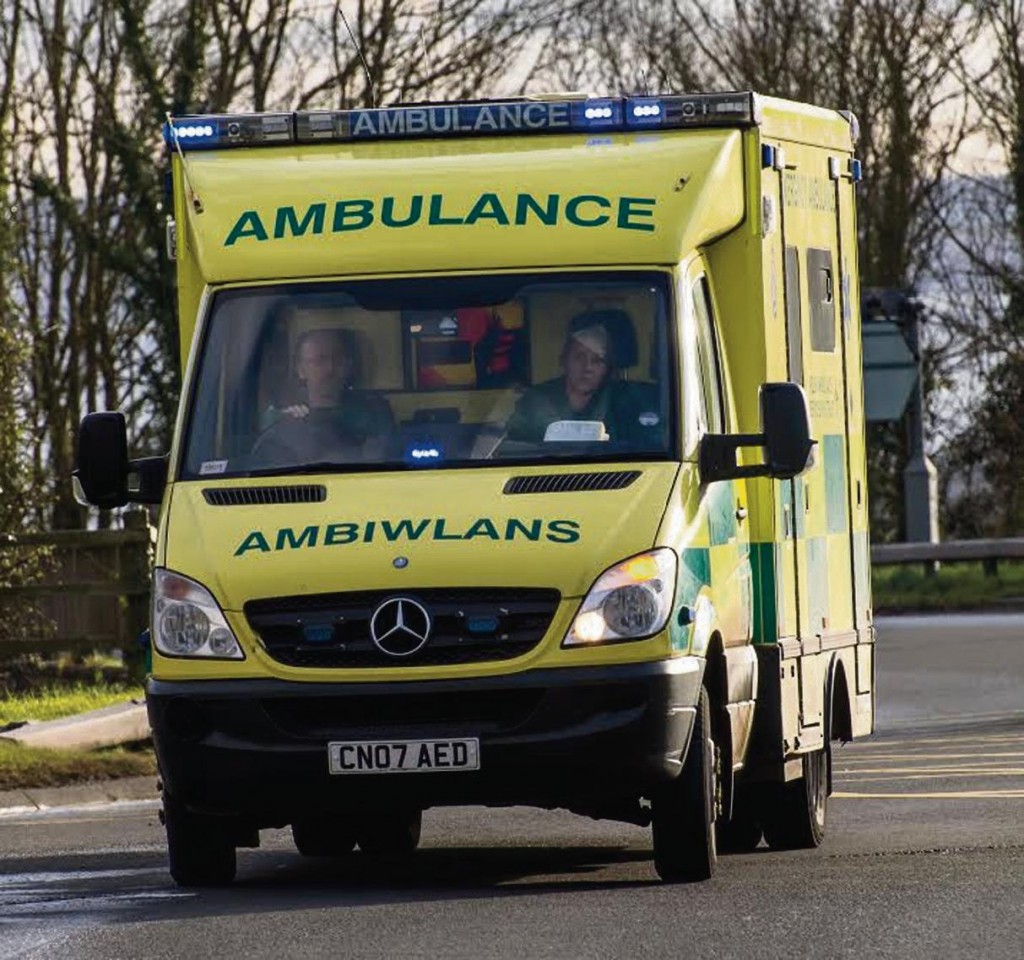
Mr. Brooks expressed gratitude to the public for their patience and extended appreciation to the dedicated staff and volunteers, acknowledging their unwavering commitment to caring for the people of Wales under challenging circumstances. He concluded, “We all rely on our NHS, and we are committed to making things better for our patients and our people.” As the service explores innovative approaches to future healthcare delivery, public cooperation remains pivotal.
Health
NHS workers to receive 3.3% pay rise – union says award ‘timely but not enough’
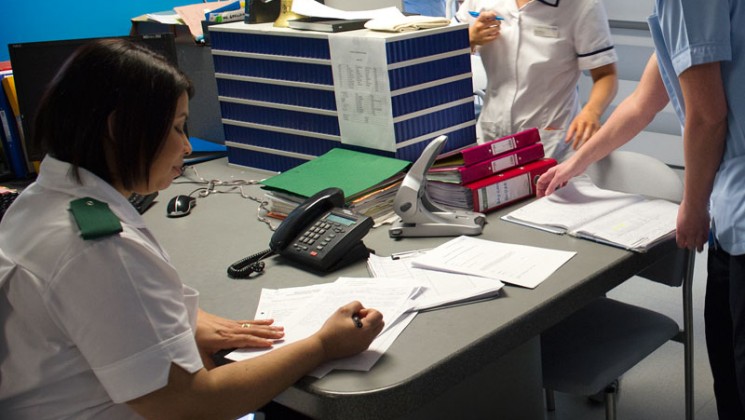
HEALTH staff across Wales and the rest of the UK are set to receive a 3.3 per cent pay rise from April after the Government accepted the latest recommendations from the independent review body – but unions say the increase still falls short after years of falling real-terms wages.
The decision follows months of pressure from unions representing nurses, paramedics, porters and other frontline staff, many of whom have taken industrial action in recent years amid rising workloads and the cost-of-living crisis.
The Health Secretary has confirmed that ministers will implement the headline award recommended by the NHS Pay Review Body for workers in England, Wales and Northern Ireland, meaning most staff covered by the Agenda for Change contract will see their salaries rise at the start of the new financial year.
Union leaders say the timing is welcome – but the figure itself does not go far enough.
Responding to the announcement, GMB Trade Union said the increase marks the first time in several years that NHS staff will receive their pay award on schedule, avoiding the delays that have previously left workers waiting months for back pay.
Rachel Harrison, national secretary for the union, said: “GMB welcomes the efforts made to ensure NHS workers will receive their pay increase when it is due, in April.
“The first time this will have happened in years.
“But this award is just not enough to make up for more than a decade of pay cuts under the Tories. NHS workers deserve more and GMB will fight for that at the long overdue Agenda for Change structural talks we have now been promised.
“GMB reps will now meet to discuss the pay award and determine next steps.”
Years of pressure
Health unions argue that although pay has risen in cash terms, inflation and years of below-inflation settlements have left many National Health Service workers worse off than they were a decade ago.
Since 2010, a combination of pay freezes, capped rises and soaring living costs has eroded real-terms earnings, with some estimates suggesting experienced staff are thousands of pounds a year worse off compared to pre-austerity levels.
Recruitment and retention remain major concerns across Welsh hospitals and ambulance services, with health boards continuing to rely on agency staff to plug gaps.
Union representatives say pay remains one of the biggest factors pushing experienced workers to leave the profession.
Impact in Wales
For NHS staff in west Wales, including Pembrokeshire and Carmarthenshire, the award will be felt from April payslips, covering a wide range of roles from healthcare assistants and cleaners to nurses, paramedics and administrative teams.
While some will welcome the certainty of an on-time rise, local staff have previously told The Herald that rising energy bills, fuel costs and housing pressures mean even modest increases are quickly swallowed up.
GMB said it will now consult workplace representatives on whether further action is needed and will push for wider reforms during upcoming structural talks on pay bands and career progression.
The union added that “timely” must not be confused with “sufficient”.
For many on the frontline, the question is no longer just when pay rises arrive – but whether they are enough to keep the health service staffed at all.
Education
New wellbeing resource to support pupils during Children’s Mental Health Week

Youth-led ‘Think Outside the Block’ toolkit rolled out to secondary schools across Pembrokeshire
A wNEW mental health and wellbeing resource designed by young people for young people has been launched in Pembrokeshire to mark Children’s Mental Health Week.
The county’s Children and Young People’s Rights Office (CYPRO) has unveiled Think Outside the Block – an interactive booklet and game aimed at helping pupils better understand emotional health and feel more confident talking about it.
The resource, launched this week (Feb 9–15), encourages open discussion, challenges common misconceptions and builds awareness around issues including anxiety, self-esteem, neurodiversity and general wellbeing.
Importantly, the project has been created by members of the Pembrokeshire Youth Assembly, working alongside CYPRO and the Primary Mental Health and School In-Reach teams.
The idea grew out of the county-wide “What Matters to You?” consultation, where young people identified mental health and emotional wellbeing as one of their top concerns. Participants said terms linked to mental health and neurodiversity are often used without clear understanding, which can create confusion and stigma.
Think Outside the Block aims to tackle that by using accessible language and interactive activities to help children explore key topics and develop the vocabulary they need to speak openly about how they feel.
Over the coming days, CYPRO will distribute the resource to secondary schools across the county. Staff will be able to use it in classrooms, youth settings and dedicated wellbeing sessions.
A spokesperson for CYPRO said: “This project has been led by young people, for young people. Their voices and experiences have shaped every part of this resource.
“We are delighted to share it with schools across the county and support meaningful conversations about mental health, emotional health and wellbeing.”
The Youth Assembly continues to play a central role in representing the views of young people locally, with this latest initiative described as a strong example of co-production in action..
Picture: Members of the Youth Assembly launch the Think Outside the Block resource (Pic: Supplied).
Health
Welsh pharmacies forced to sell medicines at a loss as funding model buckles

COMMUNITY pharmacies across Wales are being forced to sell some medicines at a loss because of an outdated NHS funding system that no longer reflects real-world costs, owners have warned.
Under current rules, pharmacists must dispense prescriptions at prices set nationally, even when those prices are lower than what they paid wholesalers — leaving them out of pocket on everyday items such as aspirin.
The situation has led to mounting debts, emergency loans and, in some cases, owners remortgaging their homes simply to keep their doors open.
Figures from the National Pharmacy Association suggest four in ten Welsh pharmacies were not profitable last year, with many described as “clinging on by their fingertips”.
Selling at a loss
Unlike normal retailers, pharmacies cannot set their own prices or refuse to stock products.
They are contracted to the NHS through the Welsh Government’s Community Pharmacy Contractual Framework, which fixes reimbursement rates for prescription medicines.
But wholesalers’ prices have risen sharply due to inflation, supply shortages and higher manufacturing costs.
That means the maths often no longer adds up.
In one example shared by pharmacists, a packet of 75mg aspirin costs £3.75 to buy but is reimbursed at just £3.05 — a loss of 70p each time it is dispensed.
Multiply that across hundreds of packs a month and dozens of other medicines, and small losses quickly turn into thousands of pounds.
One west Wales pharmacy owner told The Herald: “You wouldn’t run a corner shop selling bread for less than you paid for it. But that’s effectively what we’re told to do every day.”
‘Averaging out’ no longer works
The government’s model assumes that losses on some drugs will be balanced by profits on others.
But pharmacists say that system — once workable — has broken down.
Generic medicines that previously provided modest margins are now also rising in price, while reimbursement rates lag weeks or months behind market costs.
At the same time, running costs have surged.
Energy bills, staff wages, National Insurance contributions, fuel for deliveries and regulatory costs have all increased, while core NHS funding has remained largely flat in real terms for nearly a decade.
Owners say they are now busier than ever too, as GP surgeries redirect patients to pharmacies for minor ailments, vaccinations and clinical advice — work that takes time and staff but often brings little additional income.
Debt and closures
The result is growing financial pressure.
Some pharmacists report taking out short-term loans just to cover monthly payroll, while others have dipped into pensions or personal savings.
Across the UK, hundreds of community pharmacies have closed in recent years, with rural and small-town chemists particularly vulnerable.
Health campaigners warn that if closures continue, patients could lose easy access to prescriptions, advice and walk-in care — pushing more pressure back onto already stretched GP practices and hospitals.
David Thomas, Welsh Board member for the National Pharmacy Association said: “These shocking findings should sound major alarm bells to the Welsh government and will understandably cause concern to patients who depend on their local pharmacy.
“It is simply unsustainable and unfair to expect individual pharmacy owners to remortgage their house and dip into their pension pot to subsidise the cost of prescriptions and to keep their doors open for their patients.
“Pharmacies are hanging on by their fingertips and something has to change. Without urgent action, the government risks pharmacies closing for good and their New Prescription Service going up in smoke.
“To prevent this from happening, the government should step in and offer pharmacies a stabilisation payment, similar to recently offered to GP colleagues.
“Only through stabilisation and long term investment can pharmacies deliver the expansion in services for patients and take pressure away from others in the NHS.”
Russell Goodway, Chief Executive at Community Pharmacy Wales, the organisation representing all community pharmacy owners in Wales, said:
“The findings of this poll closely mirror our own evidence and reinforce the very real financial pressures currently facing community pharmacies across Wales, regardless of size or ownership model.
“Community Pharmacy Wales has been in ongoing dialogue with the Welsh Government Cabinet Secretary for Health and Social Care since before Christmas, seeking to secure a recurring stabilisation payment. Such support is essential to prevent further deterioration and to safeguard the sustainability of the sector. We will continue to make a strong and evidence-based case for the additional resources that are urgently needed.”
Government response
The Welsh Government says it recognises pharmacies are an essential part of primary care and points to increased investment, including additional stability payments and grants for premises improvements.
A spokesperson said reimbursement prices are set using supplier data and that “while some medicines may be reimbursed below cost on occasions, this is offset by the profits pharmacies make on most of the medicines they dispense”.
But pharmacists argue that assumption no longer reflects reality.
A simple question
At the heart of the row is a basic principle.
If the NHS commissions a service, pharmacists say, it should at least cover the cost of providing it.
As one owner put it: “No business can survive by selling stock at a loss and hoping it balances out. Eventually the numbers catch up with you.”
Unless the funding formula changes, many fear more local chemists could disappear from Welsh high streets — and with them one of the most accessible parts of the health service.
Photo caption: Community pharmacies say fixed NHS prices are forcing them to dispense some medicines below cost (Pic: stock).
-

 Health7 days ago
Health7 days agoHealth board targets rise in steroid and gym drug use across west Wales
-

 Health1 day ago
Health1 day agoHealth Board to decide future of nine key services at two-day meeting
-

 Business3 days ago
Business3 days agoComputer Solutions Wales under fire from customers
-

 Business6 days ago
Business6 days agoSix-figure negligence victory leaves retired builder trapped in divorce limbo
-

 Business5 days ago
Business5 days agoMinimum alcohol price to rise by 30 per cent as retailers warn of border impact
-

 Charity3 days ago
Charity3 days agoWelsh patient voices help shape new UK-wide online kidney forum
-

 Education6 days ago
Education6 days agoSecond west Wales school placed in lockdown within days
-
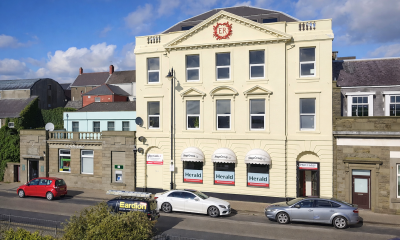
 Community2 days ago
Community2 days agoFacebook ‘news’ site targeting Herald editor collapses after community backlash













